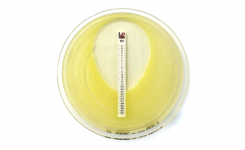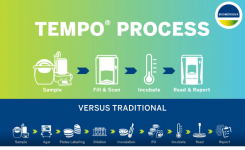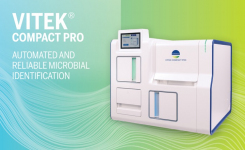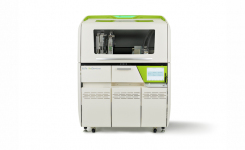Corgenix and Viral Hemorrhagic Fever Consortium partners start work on Ebola rapid diagnostic test kit development, provide status update and project timeline.
Ebola virus outbreaks tend to occur every few years and then go away rapidly. However, this year’s outbreak is the worst in recorded history, with the total number of deaths approaching 1,000. As reported previously, Corgenix Medical Corporation, a worldwide developer and marketer of diagnostic test kits, commenced work on a $2.9 million National Institutes of Health (NIH) grant in June.
In the past, Corgenix has served as a subcontractor to Tulane University for several NIH funded grants and contracts related to development of diagnostics, vaccines and therapeutics for hemorrhagic fever viruses such as Lassa, Ebola and Marburg. The most recent grant was awarded to Corgenix and members of the Viral Hemorrhagic Fever Consortium (VHFC), a collaboration of academic and industry members headed by Tulane University. The NIH phase II, R44 grant was awarded to Corgenix and VHFC to develop rapid diagnostic tests (RDT) for Ebola, enabling rapid response to public health and bioterrorism threats posed by the deadly virus. Corgenix and the VHFC have previously developed and CE marked the ReLASV® rapid test for the Lassa fever virus.Corgenix currently serves as the principal investigator for the new NIH-funded three-year contract to complete the development of recombinant diagnostic tests for Ebola.
Corgenix CEO Douglass Simpson said that as a reaction to the recent outbreak, the VHFC has shifted most of its efforts to the final phase of activity contemplated by the current NIH grant. Simpson also noted that, contrary to recent reports in the press, Corgenix has not finalized development of the Ebola products. “I want to strongly emphasize that this is a new three-year project, building off work commenced in 2010. We do not currently have an Ebola test nor will we likely have a final one in the near future,” said Simpson. “We understand the critical nature of this virus and are doing everything possible to accelerate efforts to develop reliable and rapid result diagnostic kits in order to be ready for the next outbreak.”
According to Robert Garry, Ph.D., Professor of Microbiology and Immunology at the Tulane University School of Medicine and Principal Investigator of the VHFC, “This is uncharted territory, and we’re all working with a heightened sense of urgency. Our goal is to be prepared for future outbreaks with rapid, accurate, point-of-care testing to diagnose or rule out both Ebola and Lassa, wherever it occurs, leading to quicker and more effective treatment, thus limiting the spread of the virus.
The Ebola RDT has not yet been approved or cleared for clinical or diagnostic use by any worldwide regulatory authority.





















